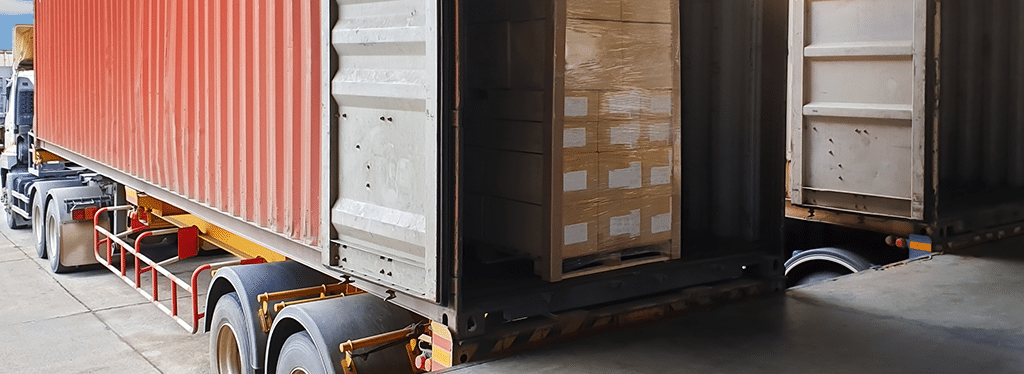
Household Goods Challenges and Increases
The global household goods shipping industry is anticipating continued capacity challenges, as well as volatility around freight costs. We anticipate these challenges to continue for the remainder of 2022 and potentially into 2023.
WHAT IS CAUSING THESE CHALLENGES?
These shipping challenges are primarily due to the ongoing effects of the COVID-19 pandemic on the global supply chain. Specific challenges include reduced frequency of freight sailings and flights, port delays, market-specific labor shortfalls, and equipment and material shortages.
The Russian invasion of Ukraine and associated volatility in the political climate are likely to further impact the supply chain and increase labor and freight costs in some markets and travel lanes, primarily in Europe.
Specific areas impacted by these disruptions include:
Port Delays Worldwide
Time at port has increased as ports are overwhelmed with containers, labor issues and pandemic policies. It is not uncommon for shipments to experience delays between 7-28 days above normal time at the ports.
Longer Transit Times
Routings have been delayed due to additional time during port handling and efforts to secure containers and space availability on the vessels and airlines. Door-to-door transit time extensions vary by travel lane, but in general, our Supplier Partners are noting 3-5 week extensions for ocean shipments and 7-10 days for air shipments.
Freight Costs
Global freight rates are averaging 200%-600% higher than pre-pandemic levels. As there continues to be a shortage of containers needed to ship goods, which impacts overall shipping costs. As an example, a recent freight quote for a 20-foot container (roughly 6,000 pounds) from Shanghai to London amounted to $10,300. Pre-pandemic, this same freight cost would have been $1,200. This represents a 758% increase in two years.
Labor Shortages
There continues to be a highly competitive labor market as movers seek to retain and hire qualified employees. In the U.S., labor costs increased 8-10% on average in 2021 and material costs increased 5-10%.
Geo-political Issues
Russia’s invasion of Ukraine is likely to further impact supply chain disruptions and increase labor/freight costs in European lanes. Fuel surcharges are also expected to climb globally, especially in Asia and the EU where there is a reliance on oil from Russia.
CONCLUSION
Altair will continue to monitor all global and market-specific supply chain disruptions and ensure expectations are set up front with all customers and other impacted parties. We will also continue to work closely with our Supplier Partners to reduce the impact of these industry disruptions.
If you have any questions, please contact your Altair Global Client Services or Business Development representative for more information.
Share This Story, Choose Your Platform!
The global household goods shipping industry is anticipating continued capacity challenges, as well as volatility around freight costs. We anticipate these challenges to continue for the remainder of 2022 and potentially into 2023.
WHAT IS CAUSING THESE CHALLENGES?
These shipping challenges are primarily due to the ongoing effects of the COVID-19 pandemic on the global supply chain. Specific challenges include reduced frequency of freight sailings and flights, port delays, market-specific labor shortfalls, and equipment and material shortages.
The Russian invasion of Ukraine and associated volatility in the political climate are likely to further impact the supply chain and increase labor and freight costs in some markets and travel lanes, primarily in Europe.
Specific areas impacted by these disruptions include:
Port Delays Worldwide
Time at port has increased as ports are overwhelmed with containers, labor issues and pandemic policies. It is not uncommon for shipments to experience delays between 7-28 days above normal time at the ports.
Longer Transit Times
Routings have been delayed due to additional time during port handling and efforts to secure containers and space availability on the vessels and airlines. Door-to-door transit time extensions vary by travel lane, but in general, our Supplier Partners are noting 3-5 week extensions for ocean shipments and 7-10 days for air shipments.
Freight Costs
Global freight rates are averaging 200%-600% higher than pre-pandemic levels. As there continues to be a shortage of containers needed to ship goods, which impacts overall shipping costs. As an example, a recent freight quote for a 20-foot container (roughly 6,000 pounds) from Shanghai to London amounted to $10,300. Pre-pandemic, this same freight cost would have been $1,200. This represents a 758% increase in two years.
Labor Shortages
There continues to be a highly competitive labor market as movers seek to retain and hire qualified employees. In the U.S., labor costs increased 8-10% on average in 2021 and material costs increased 5-10%.
Geo-political Issues
Russia’s invasion of Ukraine is likely to further impact supply chain disruptions and increase labor/freight costs in European lanes. Fuel surcharges are also expected to climb globally, especially in Asia and the EU where there is a reliance on oil from Russia.
CONCLUSION
Altair will continue to monitor all global and market-specific supply chain disruptions and ensure expectations are set up front with all customers and other impacted parties. We will also continue to work closely with our Supplier Partners to reduce the impact of these industry disruptions.
If you have any questions, please contact your Altair Global Client Services or Business Development representative for more information.



![Household Goods Challenges and Increases 7 [GUIDE] Local Plus Policy Considerations](https://www.altairglobal.com/wp-content/uploads/2024/12/GCS-Thought-Leadership-Blog-Header-Image-500x383.png)



